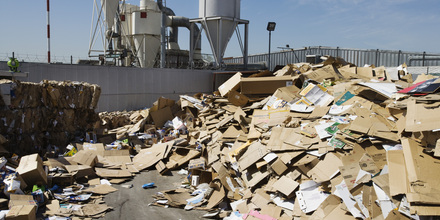Industrial Pollution & Chemicals
Our Work
Latest in Pollution Control Policy
-

Case studies focusing on different types of environmental crime
IEEP, as being part of a 40-months EU-funded research project, produced three case studies focusing on illegal e-waste shipment, illegal localised pollution incidents and illegal fishing.
-
The Manual: Chapter 4 - Industrial pollution
This is a chapter of IEEP’s Manual of European Environmental Policy. This chapter provides information on EU industrial pollution policy, which outlines and discusses the legislation in place to minimise the negative effects of harmful substances and pollutants on the environment and human health.
-
The Manual: Chapter 8 - Chemicals
This is a chapter of IEEP’s Manual of European Environmental Policy. This chapter on chemicals focuses on the two main strands of EU chemicals policy: REACH – (Registration, evaluation, authorisation of restricted chemicals) and CLP – (classification, labelling and packaging).
-
Environmental policy and the UK’s review of the EU Balance of Competences
The UK Government’s Balance of Competences review has now taken evidence on 25 subject areas, including the 6 with the most relevance for the Environment. We take stock of the IEEP’s contributions, and consider what a possible UK renegotiation might mean for the environment.
-
Water Scarcity Briefings
Water scarcity is a major threat to Europe’s waters. Three briefings have been produced summarizing research on this issue and setting out the European policy context.
-
Linking the Water Framework Directive and the IPPC Directive: Phase 2
Integrating pollution control into river basin management is a major challenge. A report for IMPEL explores how Member States address this.
-
Linking the Water Framework Directive and the IPPC Directive
Integrating pollution control into river basin management is a major challenge. A new report for IMPEL explores how EU addresses this interaction.
-
The challenge of regulating intensive pig farms
A new IMPEL report written by Andrew Farmer and Megan Lewis examines the range of practices in the EU on the regulation of intensive pig farms. The environmental impacts present a number of challenges ...
